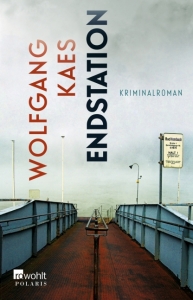
Crime writer Claire McGowan has grown up in a small town in Northern Ireland which she always perceived as a safe place despite the Troubles. Of course, the news daily reported about bombings and people killed but what she hadn’t been aware of was the incredibly high number of girls and women who were abducted or simply vanished in both Northern and the Republic of Ireland. Some of the cases happened close to where she lived, happened to girls her age who roamed the same places when she did but she has never even heard of it. Only rarely was a suspect arrested and even more seldom convicted for rape or murder. How could the country have such a high number of women murdered and except for their families nobody seems to care?
I have enjoyed Claire McGowan’s crime novels for some years now, not only because the plots are suspenseful and complex, but also because she manages to capture the atmosphere of a place, to create a special mood that can only exist there. With her deep understanding for the people and the places they live and which shape their thinking and acting, I was curious to read her true crime investigation of femicides.
What her enquiry uncovers is not the Ireland that has attracted tourists and business for decades. It is a country that was shaped by the Catholic church and whose legislation was far behind other European countries in terms of women’s rights. With the Troubles, it was often safer not to have seen anything and, first and foremost, not to say anything, thus atrocious crimes could happen in broad daylight in front of everybody’s eyes. The deeper she digs the more cases she finds and can link to a small area, the so called “Vanishing Triangle”, where an astonishing number of woman have disappeared and whose cases remain unsolved.
McGowan tells the women’s stories, lists the evidence and also provides reasons why their bodies are still missing or why prime suspects still walk free. All this grants a look in the country’s state in the 1980s and 1990s – a lot has changed since, but still society and police often fail female victims today.
A read which is as interesting as it is disturbing. I really enjoy listening to true crime podcasts thus the topic attracted me immediately. What I really appreciated was that Claire McGowan did not take a neutral position towards her account but you can sense her anger and the incredulity with which she looks at her findings and which makes you wonder why not more people shout out because of this.

